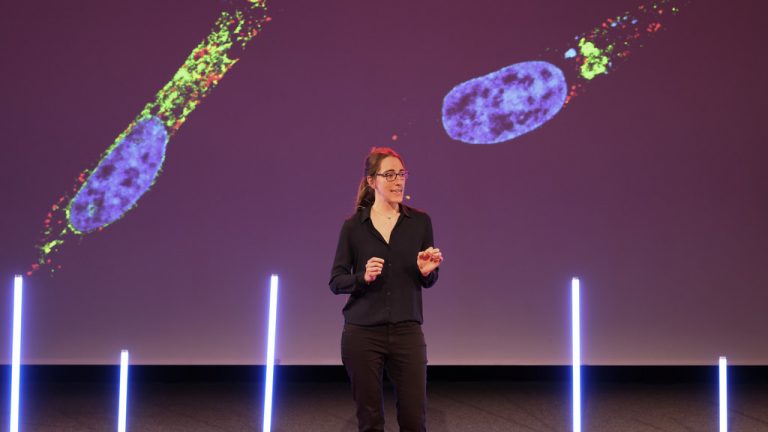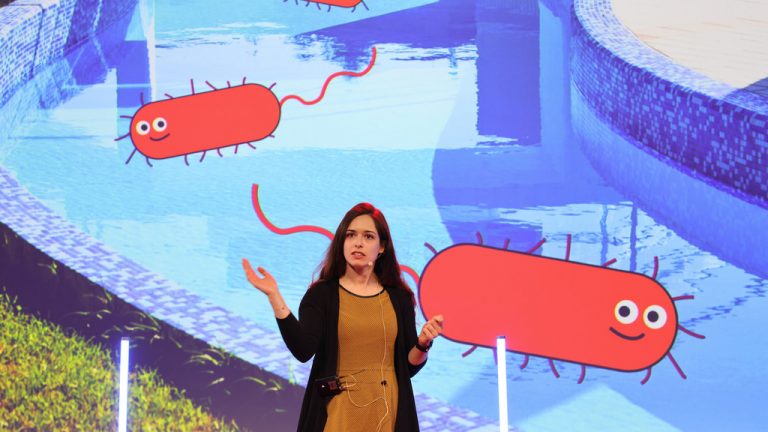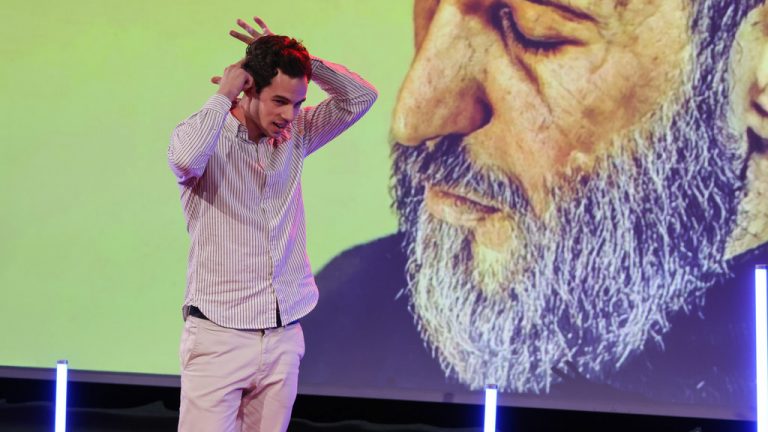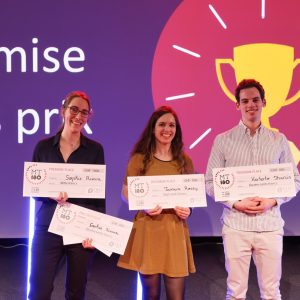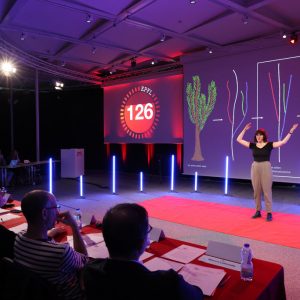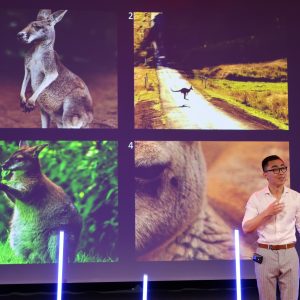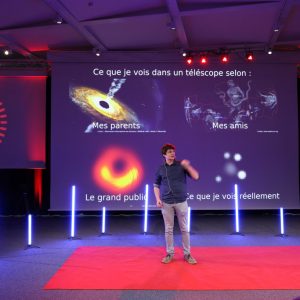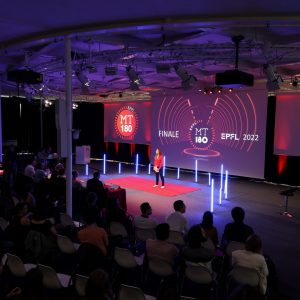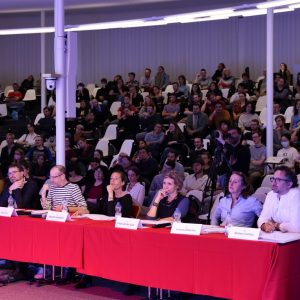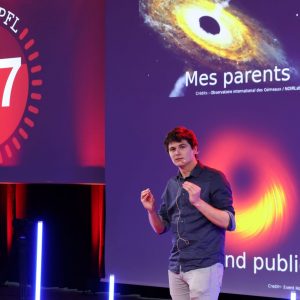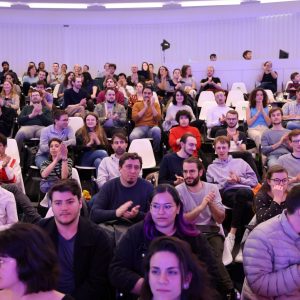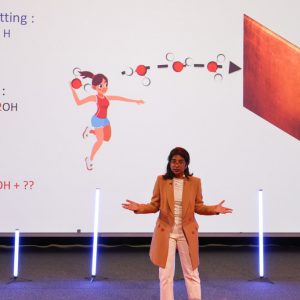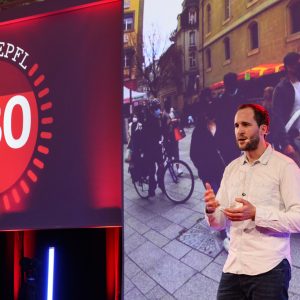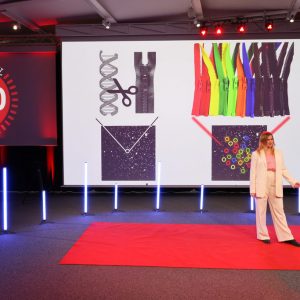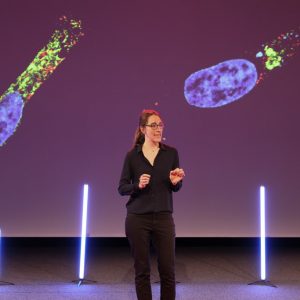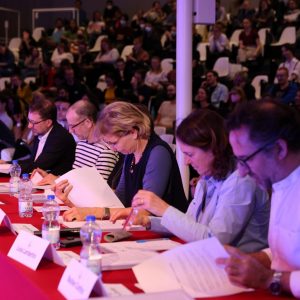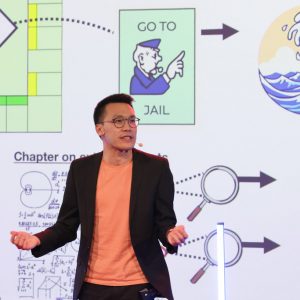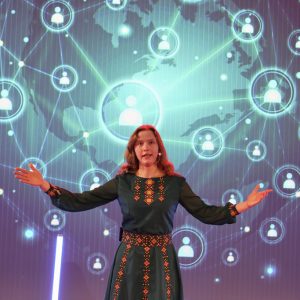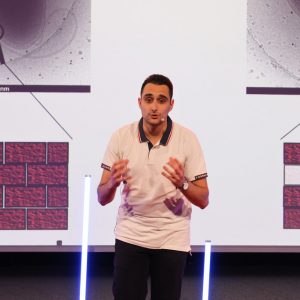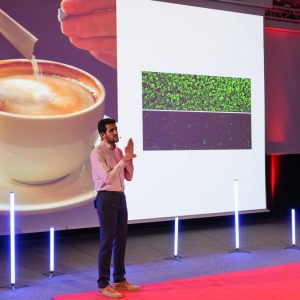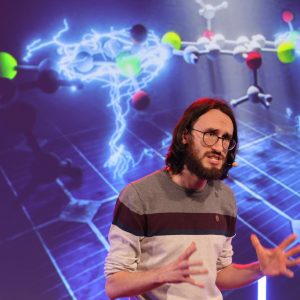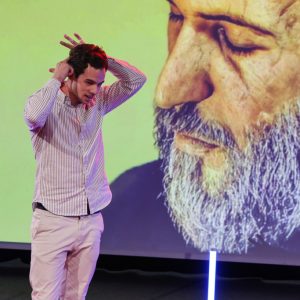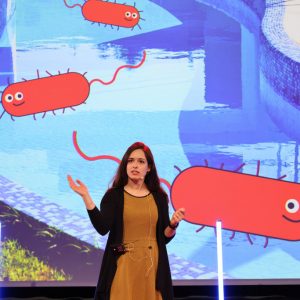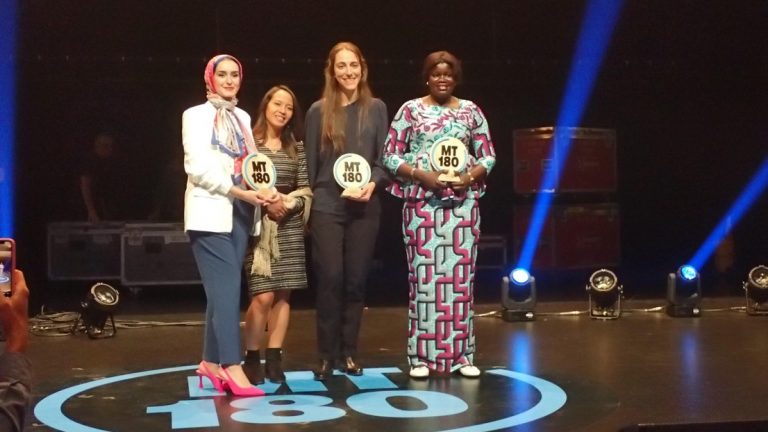Finale EPFL 2022
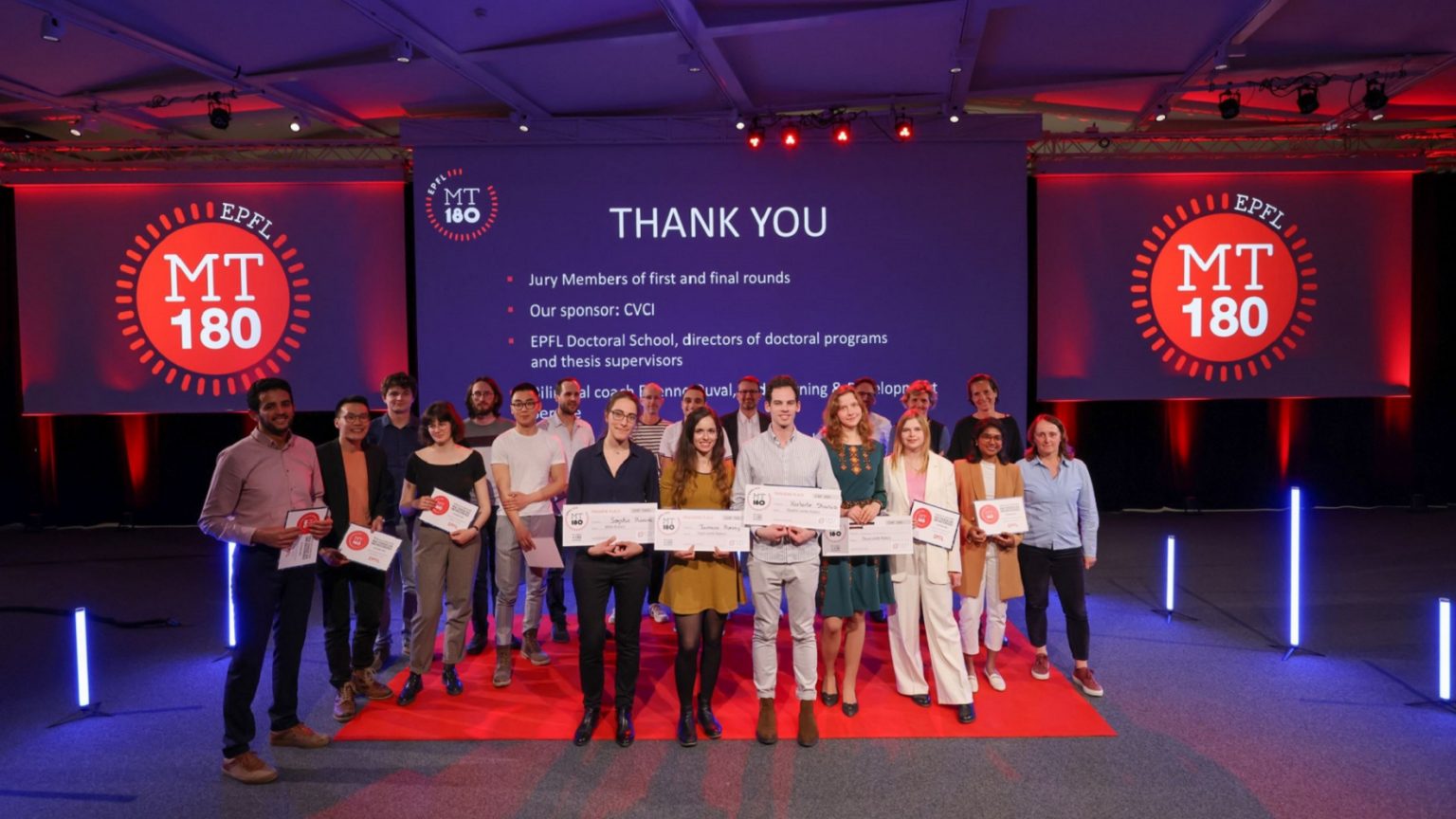
Finalistes EPFL de la 6ème édition du concours "Ma thèse en 180 secondes"
Voir ou revoir la finale du 24 mars 2022
Lauréat.e.s EPFL
- Lukas Huber, «Learned and Reactive Robot Motion in Consideration of Convergence Constraints», Laboratory of Learning Algorithms and Systems, Prof. Aude Billard, English
- Harmina Vejayan, «Water Splitting on Copper», Group for Gas-Surface Dynamics, Rainer Beck, English
- Kristina Makasheva, «XSCAN – single-molecule Multiplexed Approach to study Chromatin dynamics», Laboratory of Biophysical Chemistry of Macromolecules, Beat Fierz, English
- Eric Paic, «Strong and Microlensing of distant Quasars», Frédéric Courbin, Laboratoire d’astrophysique, Français
- Tamara Rossy, «The effects of fluid flow and rheology on bacterial colonization in engineered realistic microenvironments», Laboratoire de mécanique microbienne, Alexandre Persat, Français
- Herberto Dhanis, «Modulating Hallucinations in Parkinson’s Disease», Cognitive Neuroscience & Medical Image Processing Laboratories, Olaf Blanke & Dimitri Van De Ville, English
- Hugo Cui, «Statistical physics of multi-layer neural networks», Laboratoire de physique statistique des systèmes computationnels, Lenka Zdeborová, Français
- Adélie Garin, «From Trees to Barcodes and Back Again: A Combinatorial, Probabilistic and Geometric Study of a Topological Inverse Problem», Laboratoire pour la topologie et les neurosciences, Kathryn Hess, Français
- Jacob Blaskovits, «Fragment-based design of singlet fission materials», Laboratory for Computational Molecular Design, Clémence Corminboeuf, English
- Anastasiia Kucherenko, «Adversaries in gossip-based algorithms», Scalable Computing Systems & Distributed Computing Laboratory, Anne-Marie Kermarrec & Rachid Guerraoui, English
- Muaz Draz, «Next generation microfluidic systems for cancer diagnostics», Microsystems Laboratory 2, Martin Gijs, English
- Leonardo Rocha, «Deciphering the role of a virulence-associated system in Vibrio cholerae», Laboratory of Molecular Microbiology, Melanie Blokesch, English
- Jonathan Koh, « Spatiotemporal modelling of extreme wildfires and severe thunderstorm environments», Chair of Statistics, Anthony Davison, English
- Sophie Rivara, «Tracking spatiotemporal localization and interactions of the innate immune sensor STING», Groupe de recherche sur l’immunité innée, Andrea Ablasser, Français
- Luisa Lambertini, professeure au CDM et vice-présidente associée pour l’éducation postgrade à l’EPFL
- Gisou van der Goot, professeure à la Faculté SV et vice-présidente pour la transformation responsable à l’EPFL
- Marilyne Andersen, professeure à la Factulté ENAC et présidente du comité Campus EPFL Fribourg
- Mauro Lattuada, Technology Transfer Manager à l’EPFL
- Julien Guex, sous-directeur de la chambre vaudoise du commerce et de l’industrie (CVCI) et secrétaire général de la Fondation pour l’Innovation Technologique
- Bastien Confino, journaliste scientifique RTS

Photographies
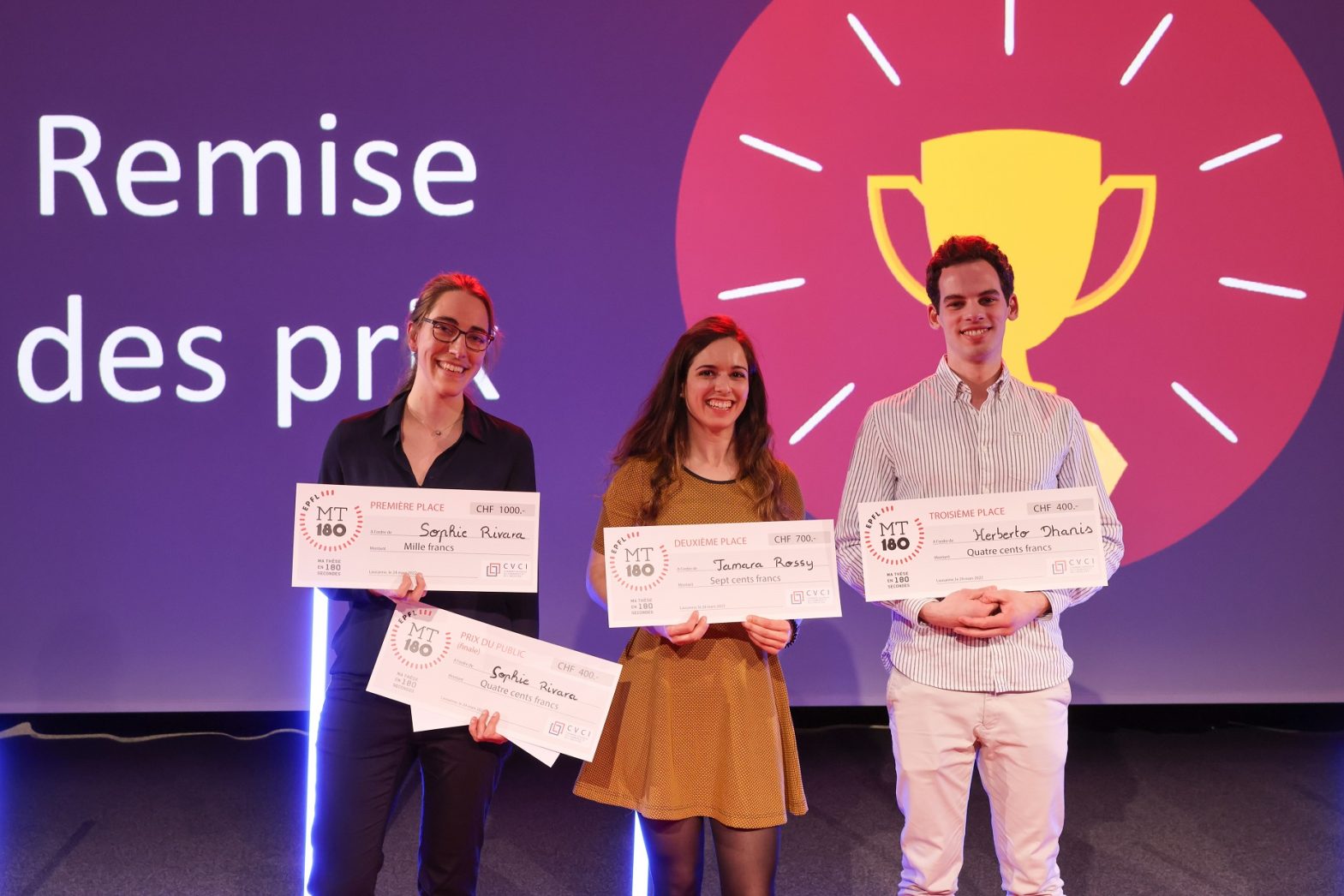
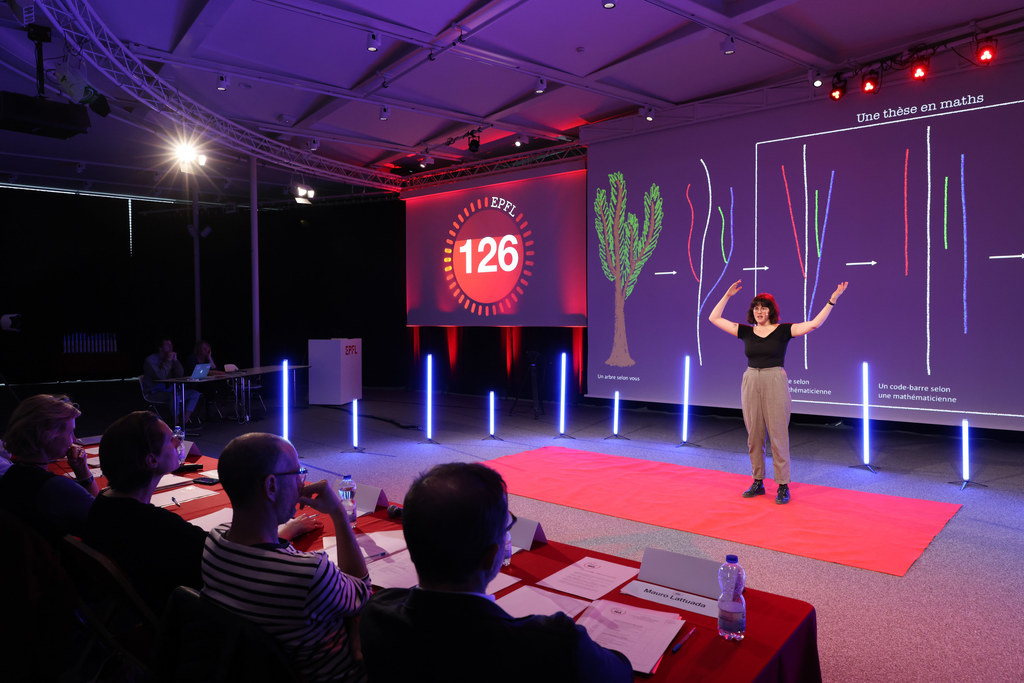
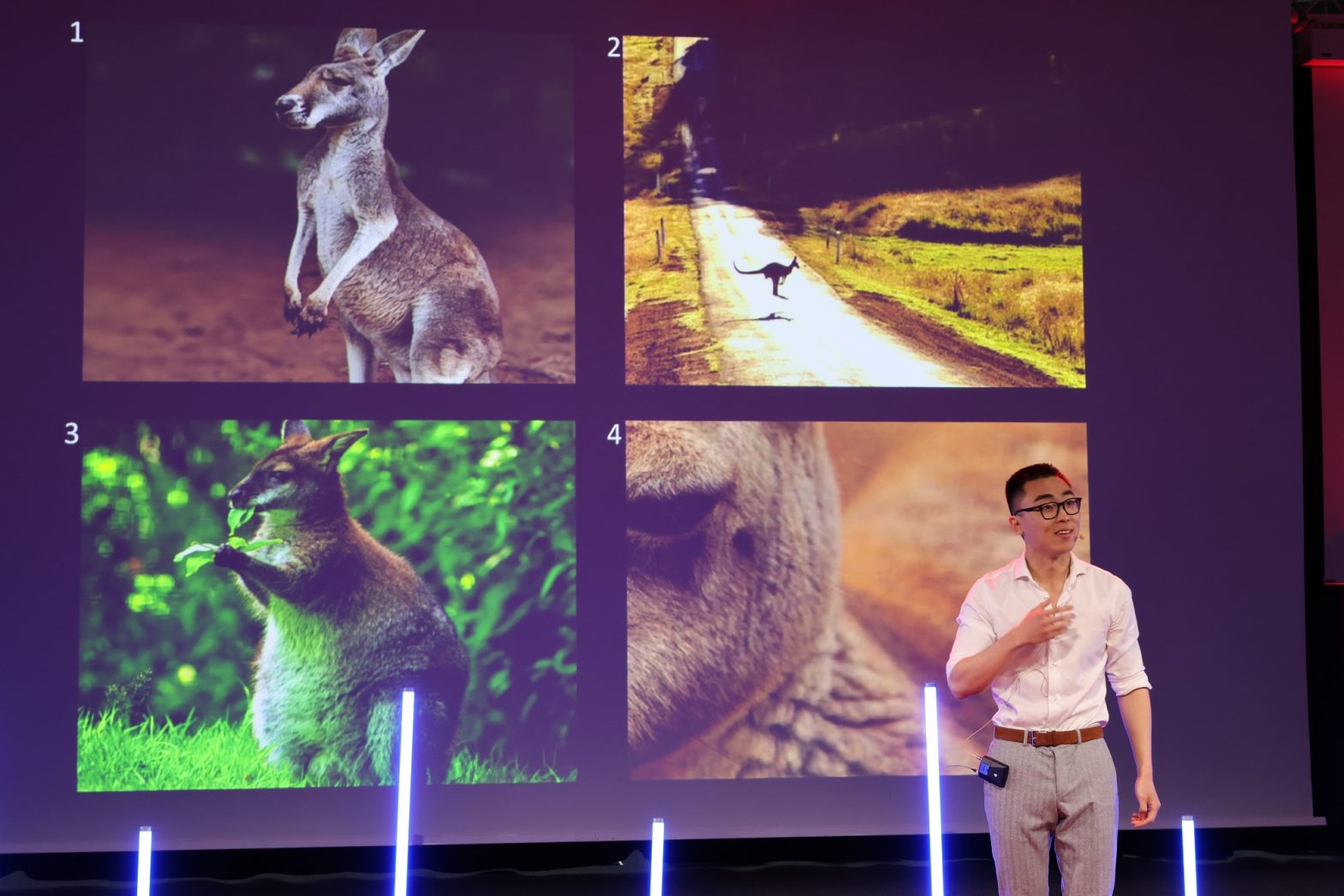
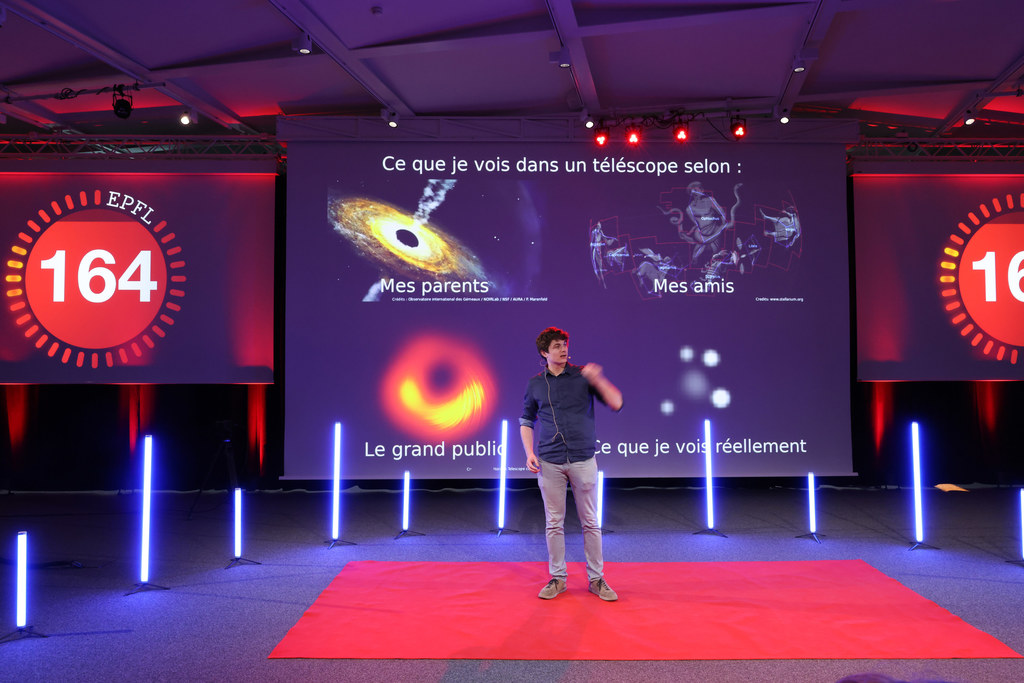
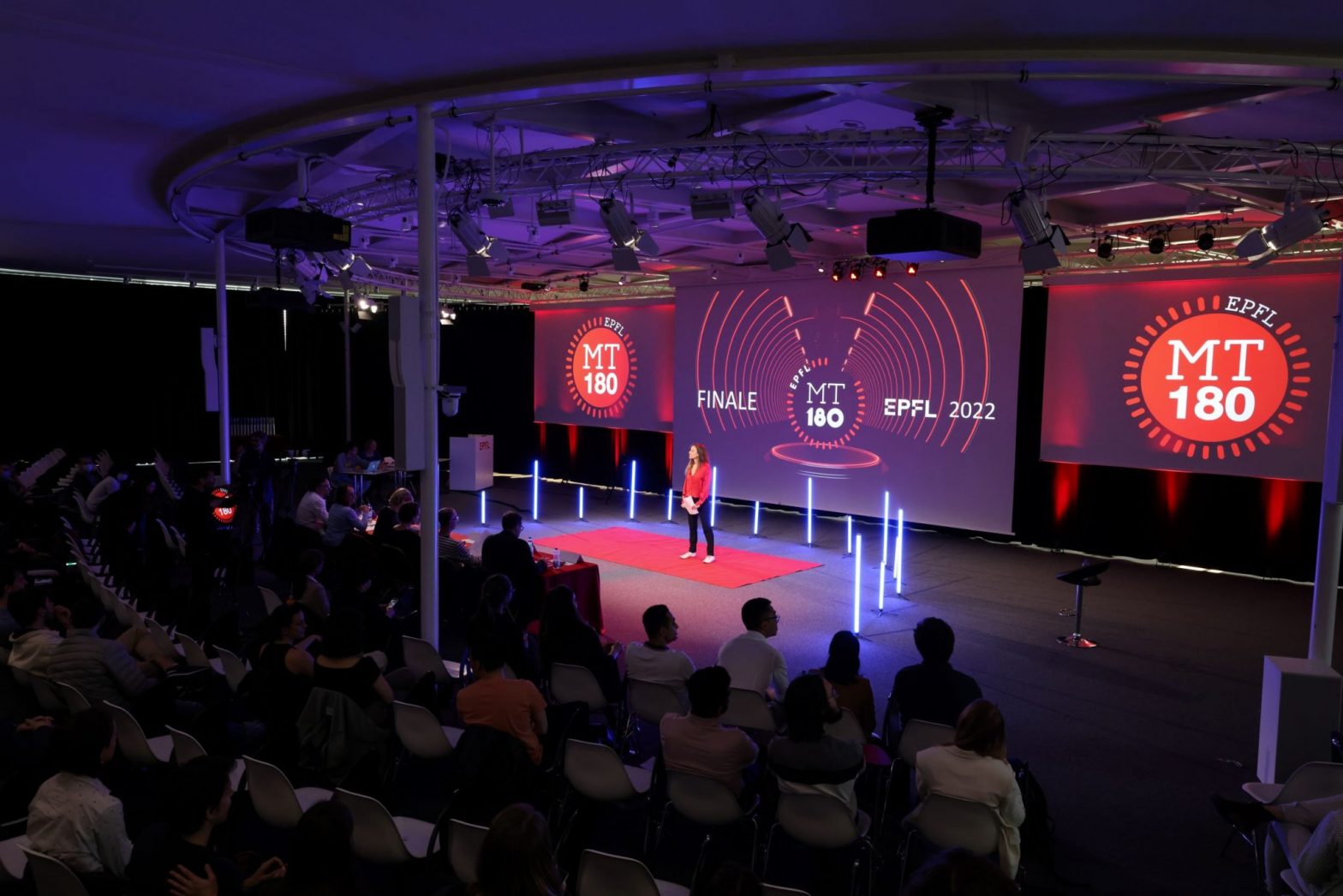
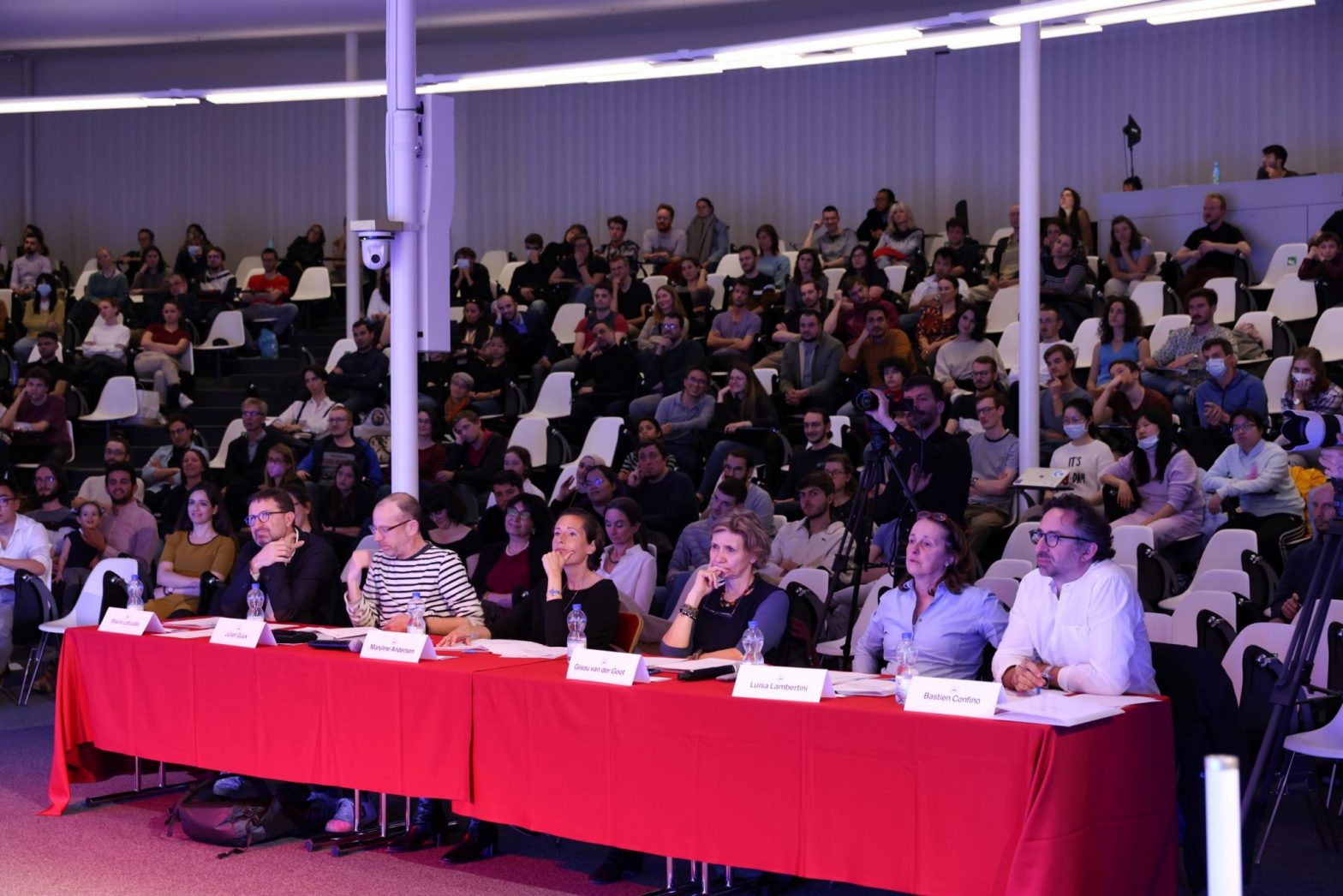
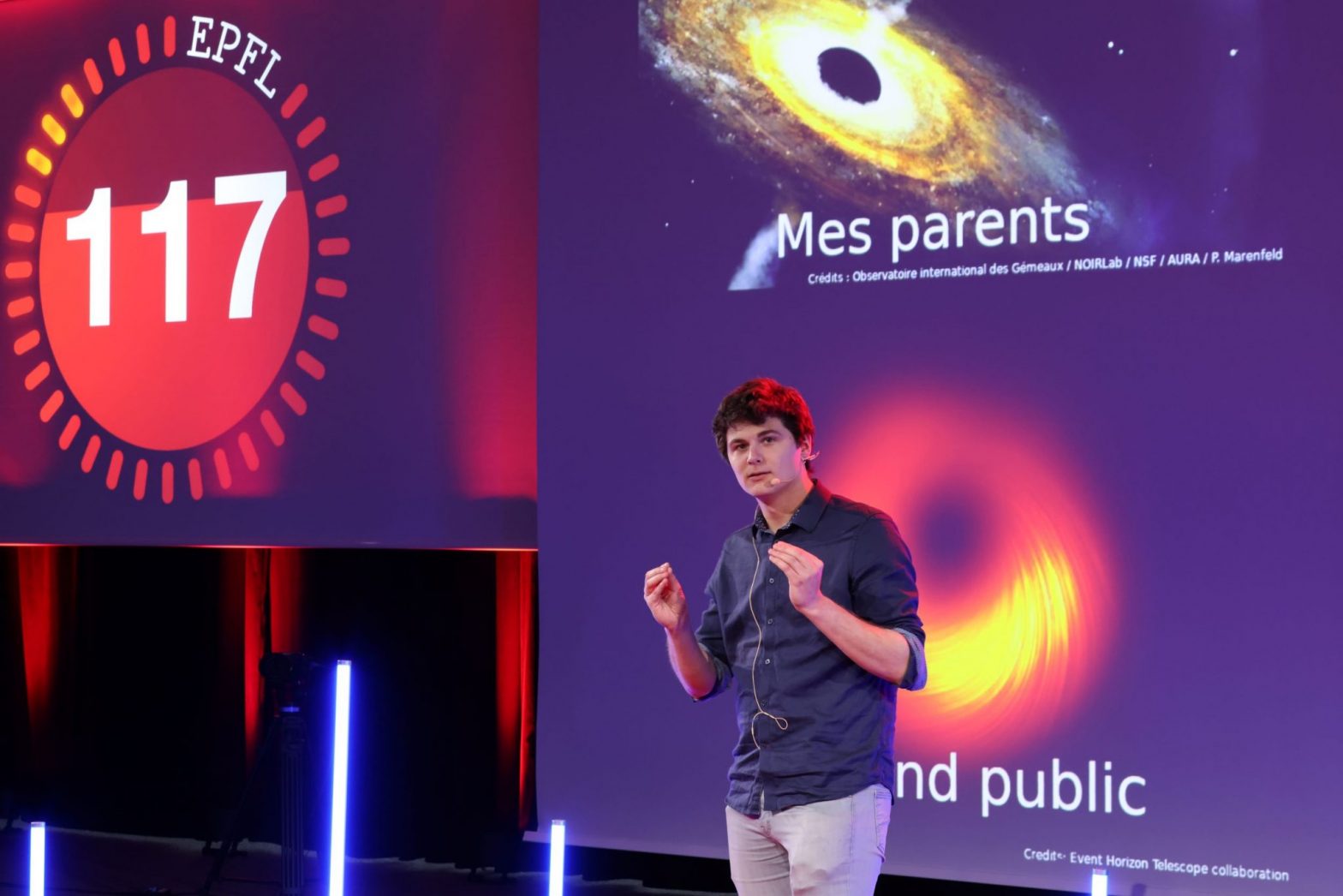
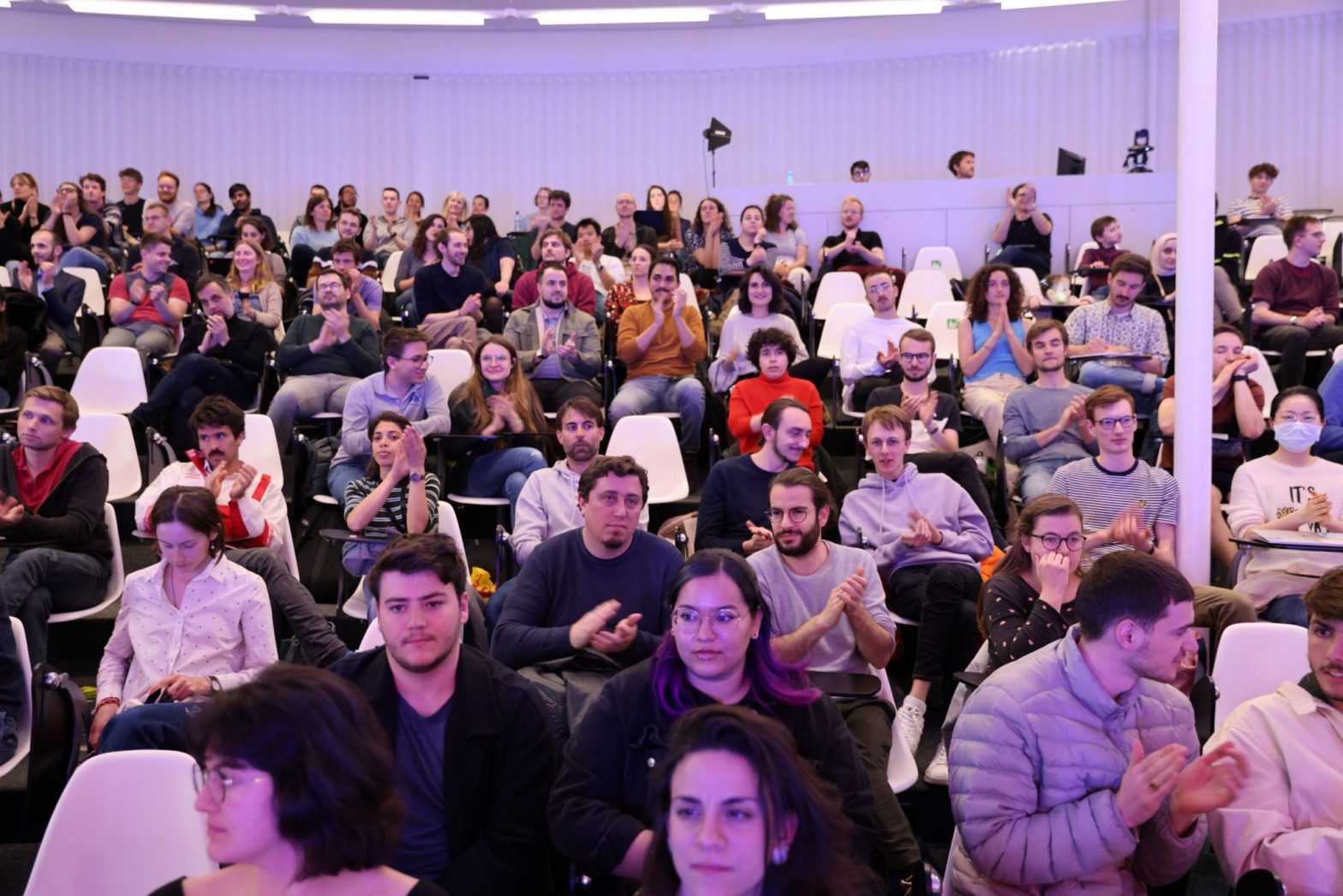
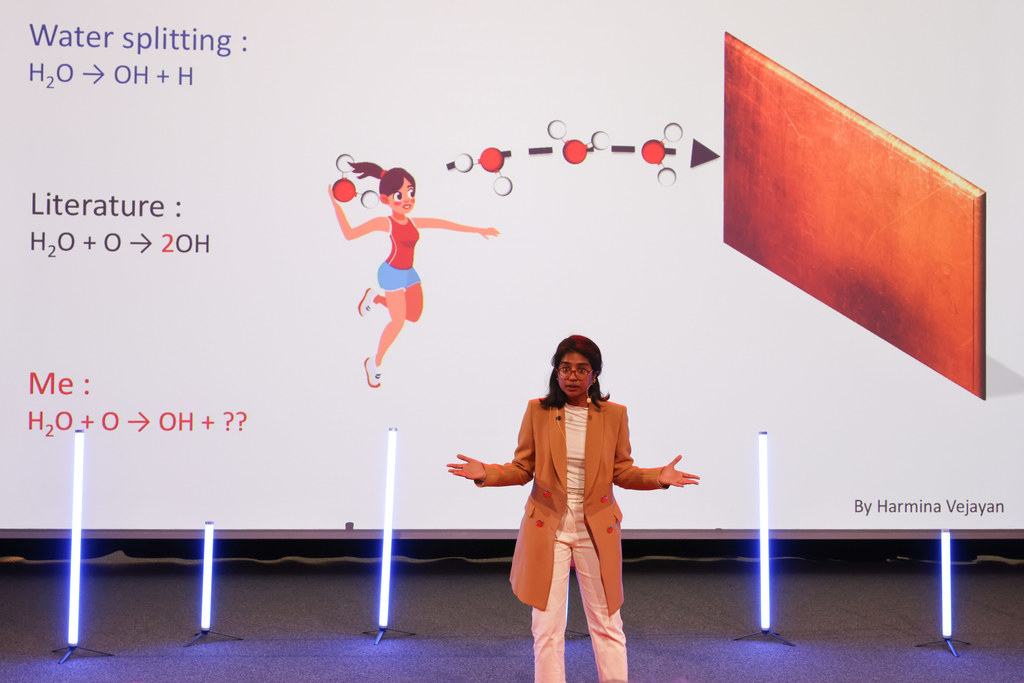
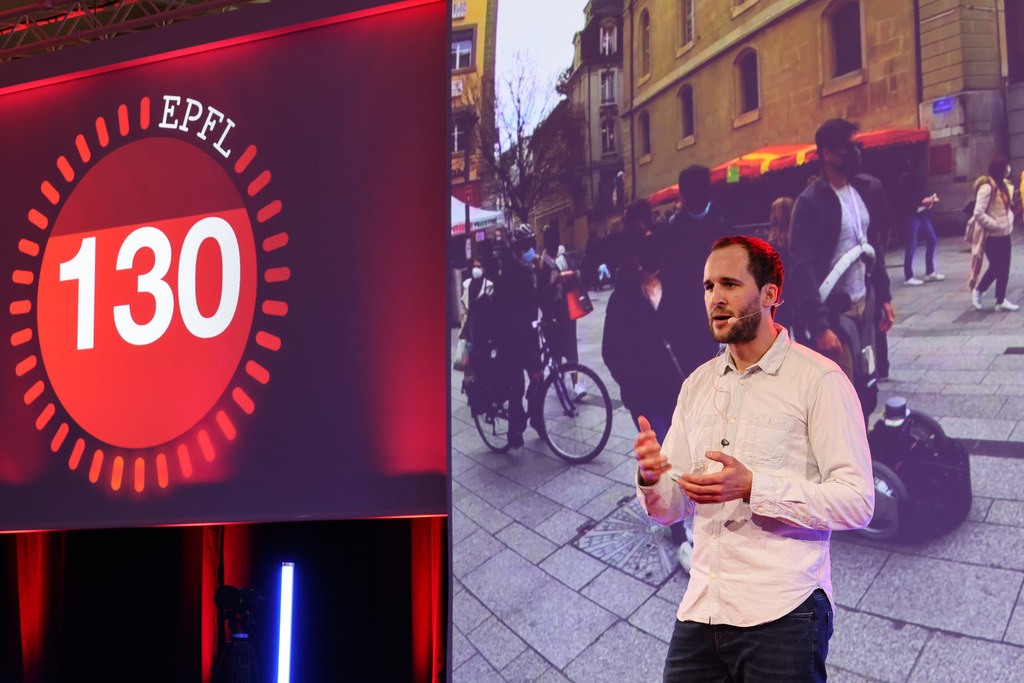
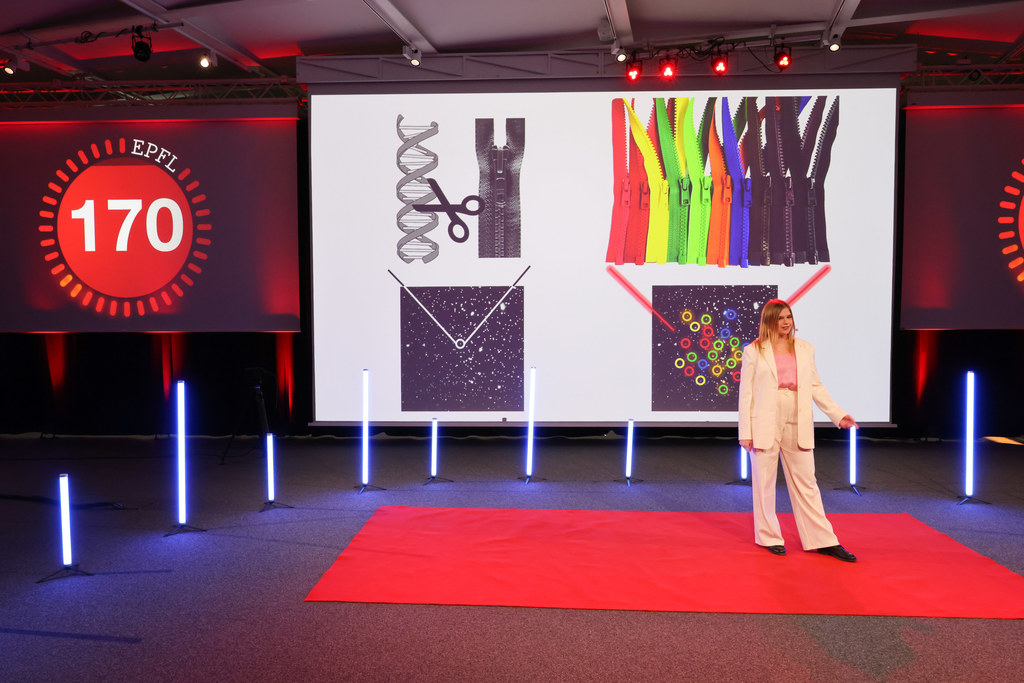
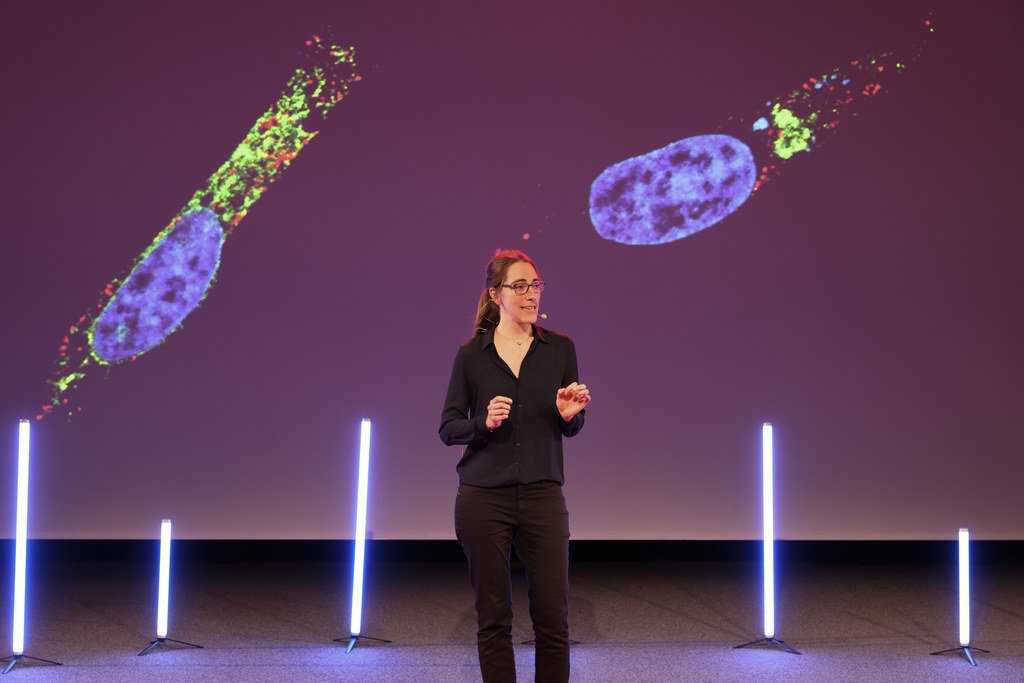
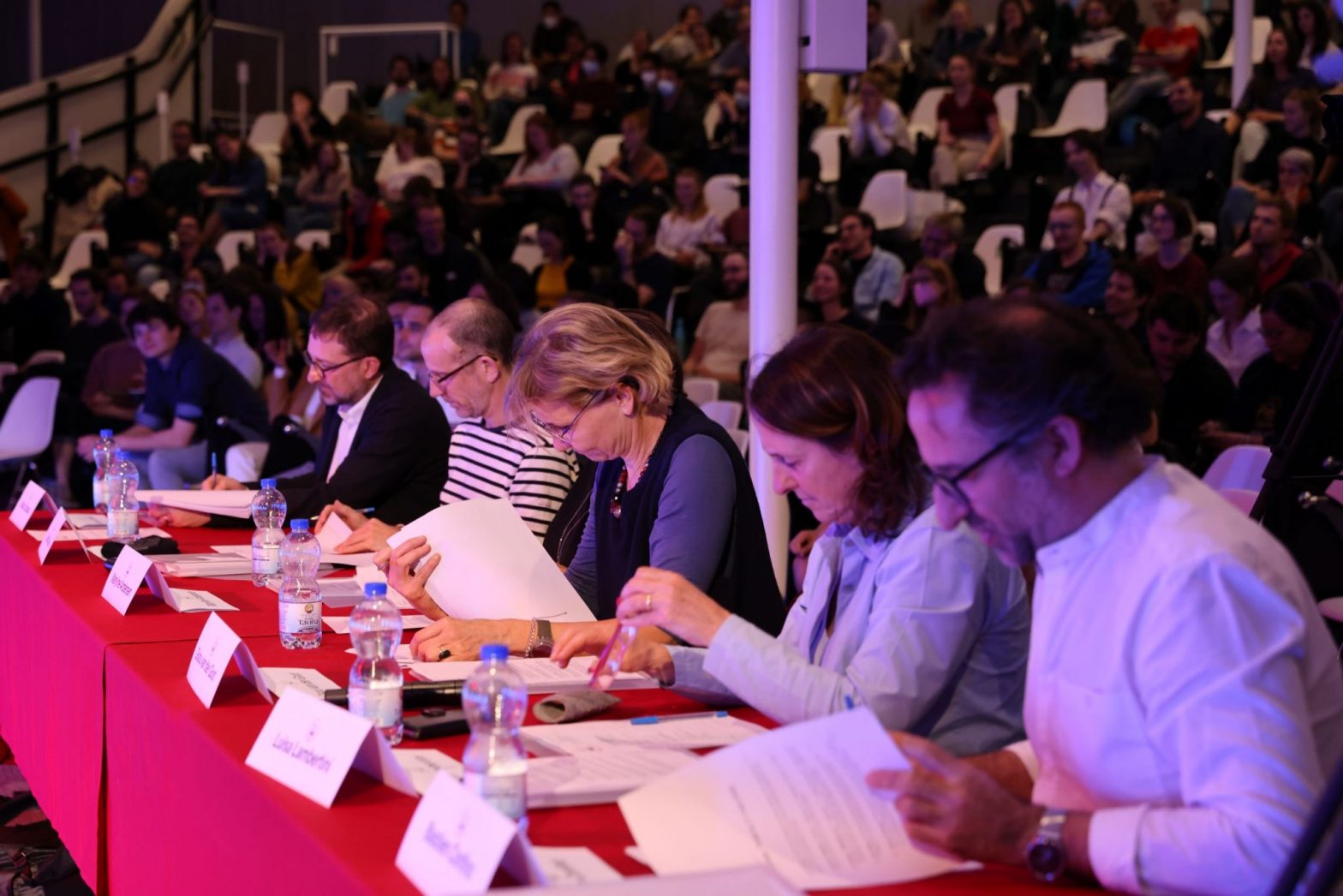
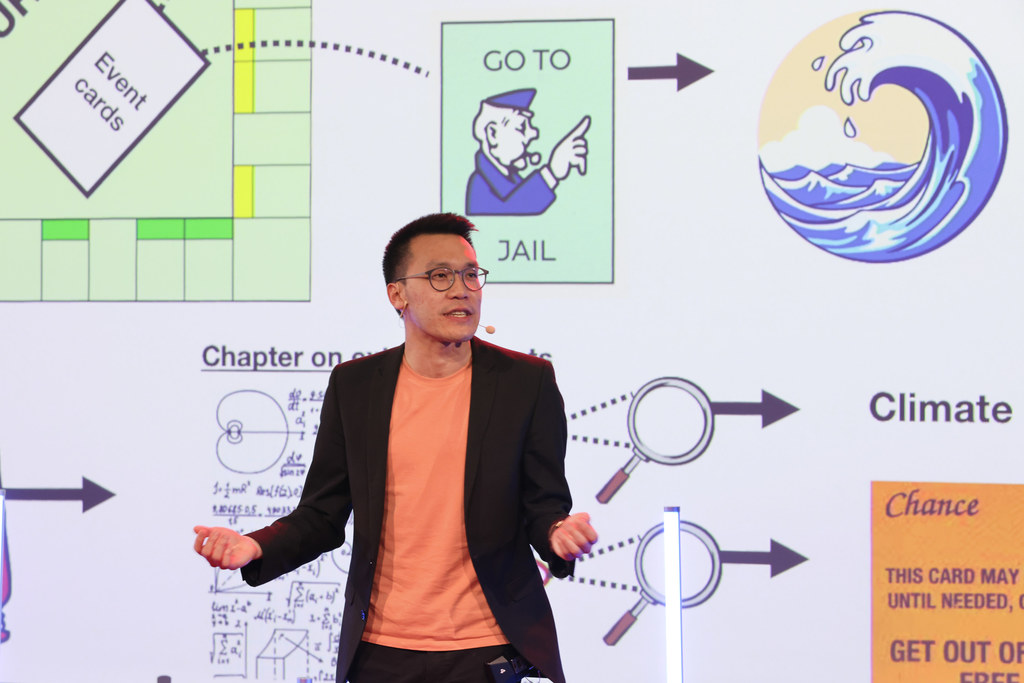
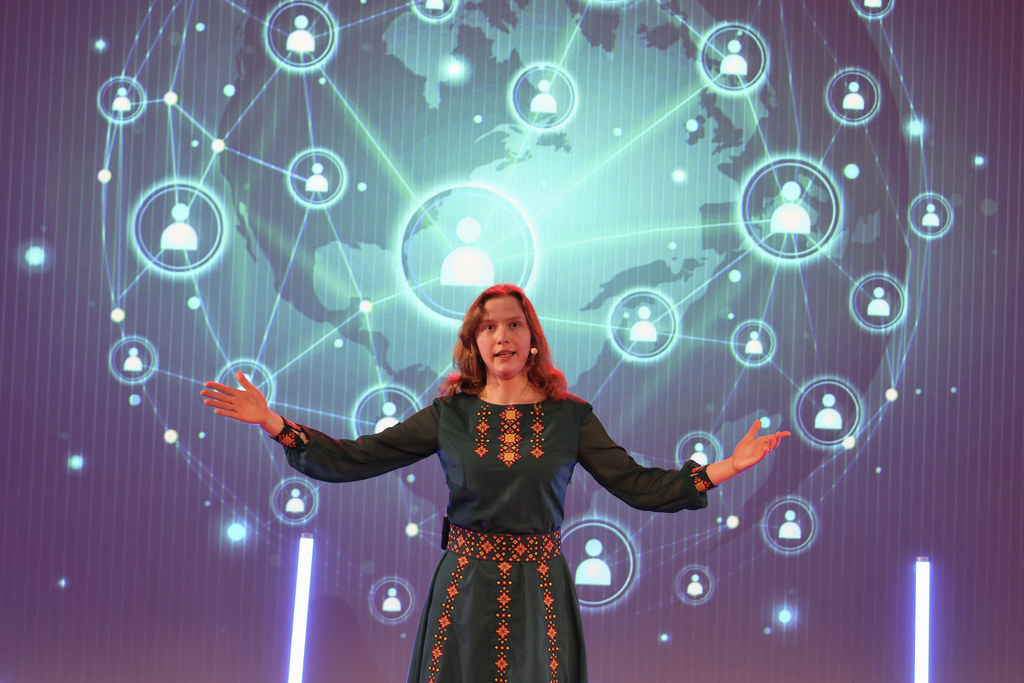
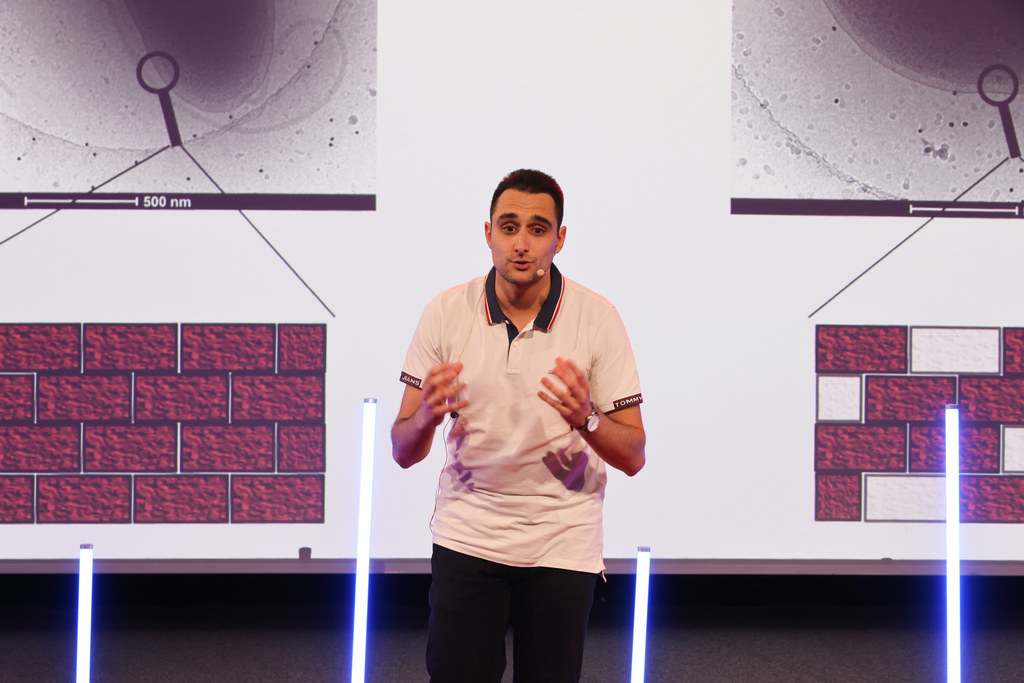
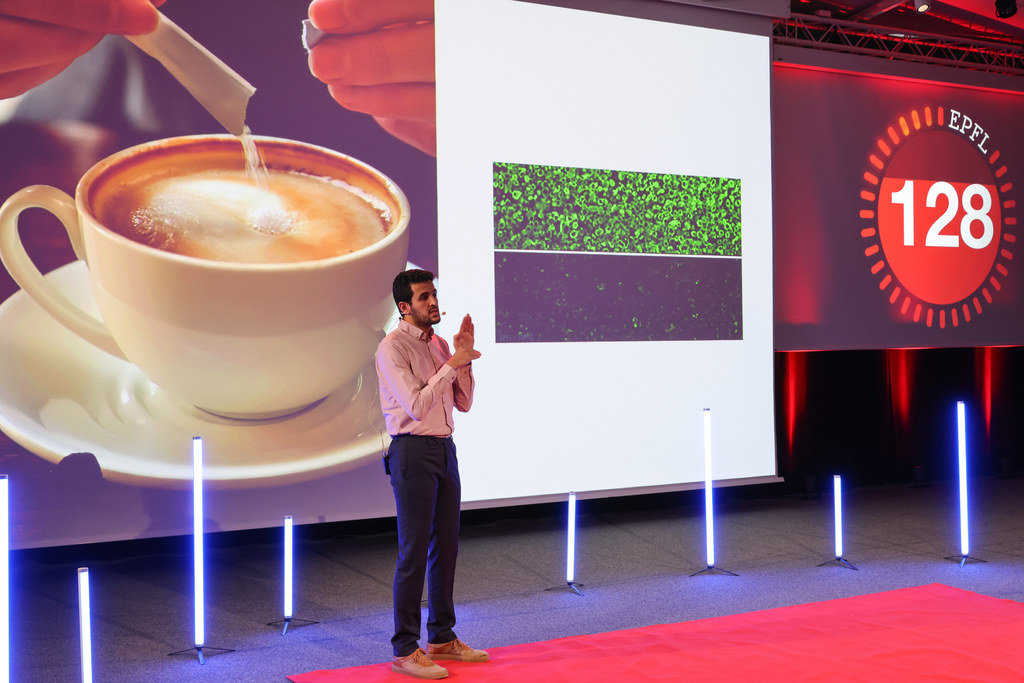
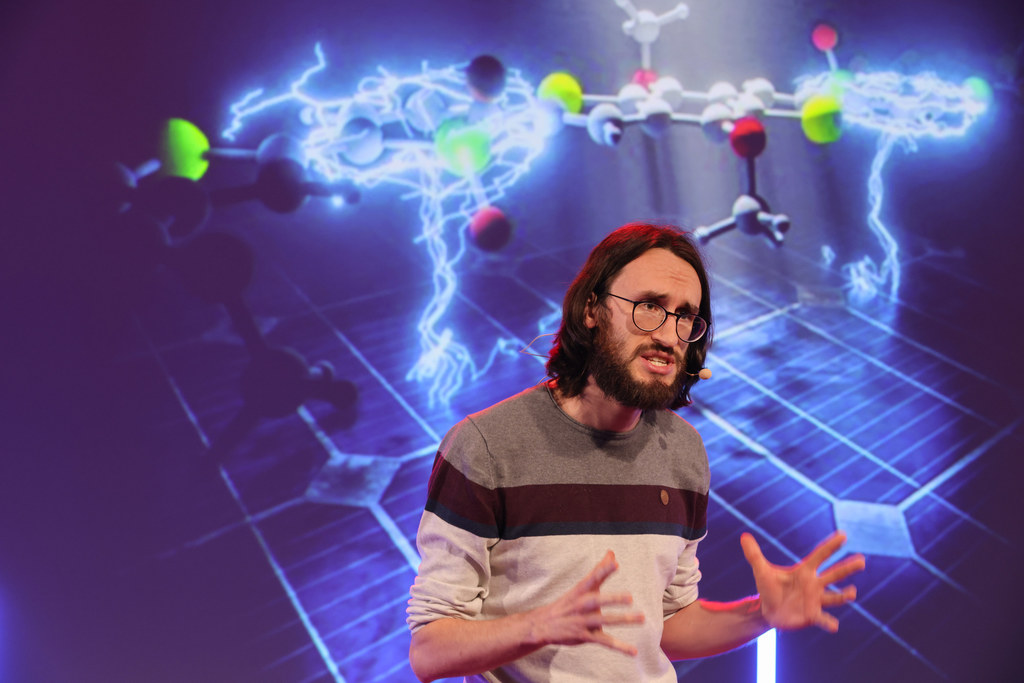
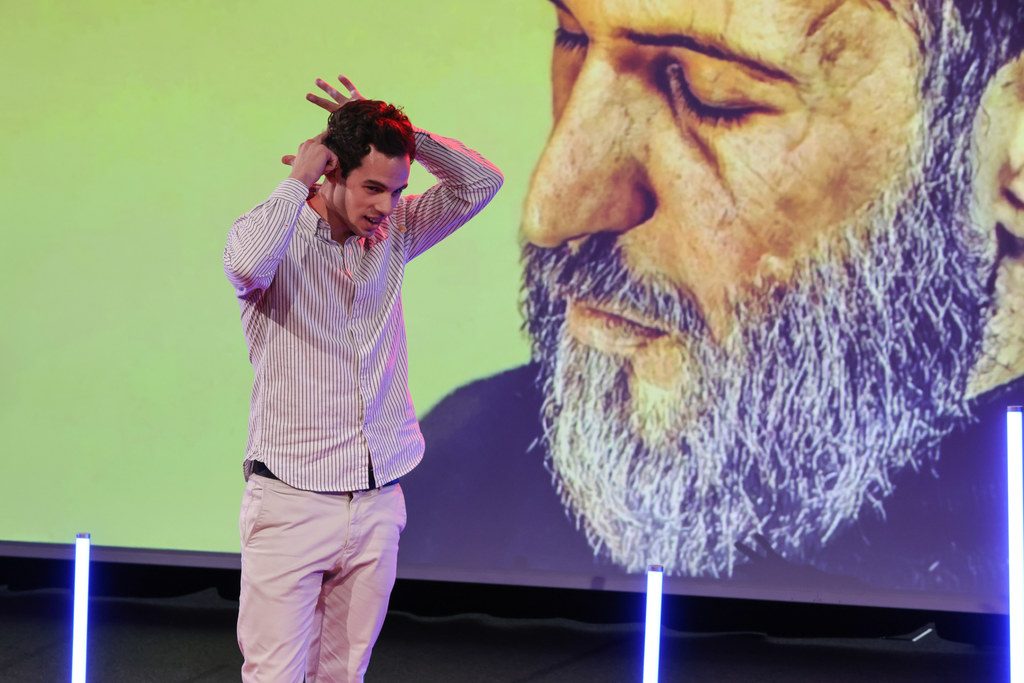
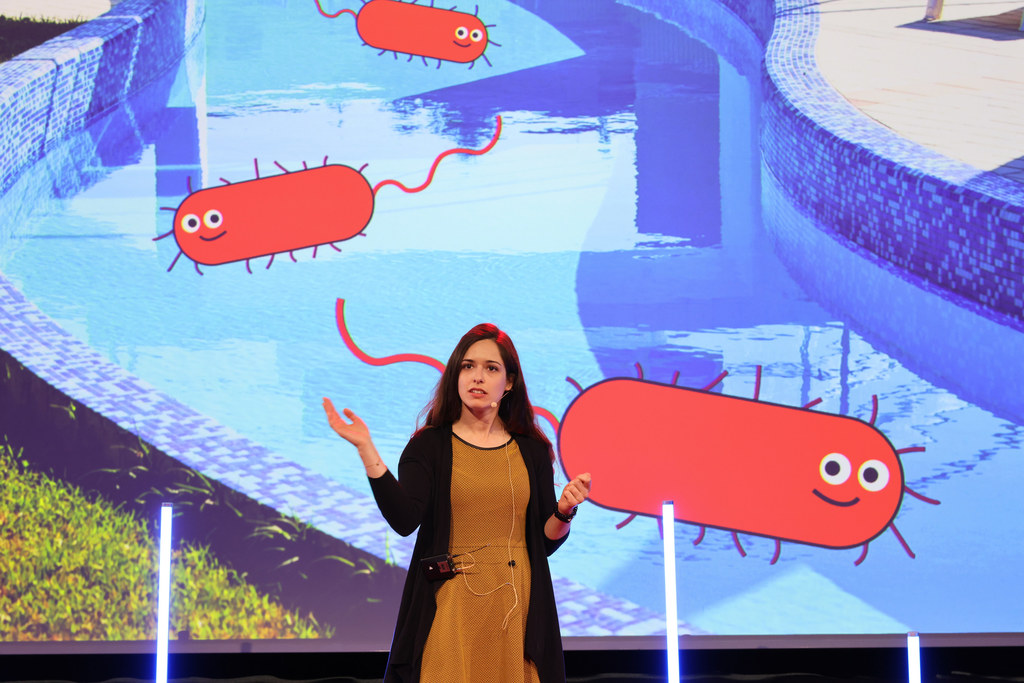
Finale suisse
Tamara Rossy (25:03), Sophie Riva (36:02) et Eric Paic (56:55) étaient à la finale suisse du concours le 19 mai 2022 à l’UNIGE.
Sophie Rivara remporte la finale suisse avec sa thèse « Traquer la localisation spatiotemporelle et les interactions du senseur de l’immunité innée STING »
Finale internationale
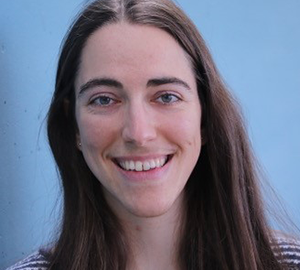
Faire comprendre la recherche, son importance et ce qu’elle peut apporter, va de pair avec la science, lui donne un sens au-delà de « la connaissance pour la connaissance ». Et voir une étincelle d’intérêt ou de compréhension s’allumer chez son interlocuteur n’a pas de prix!
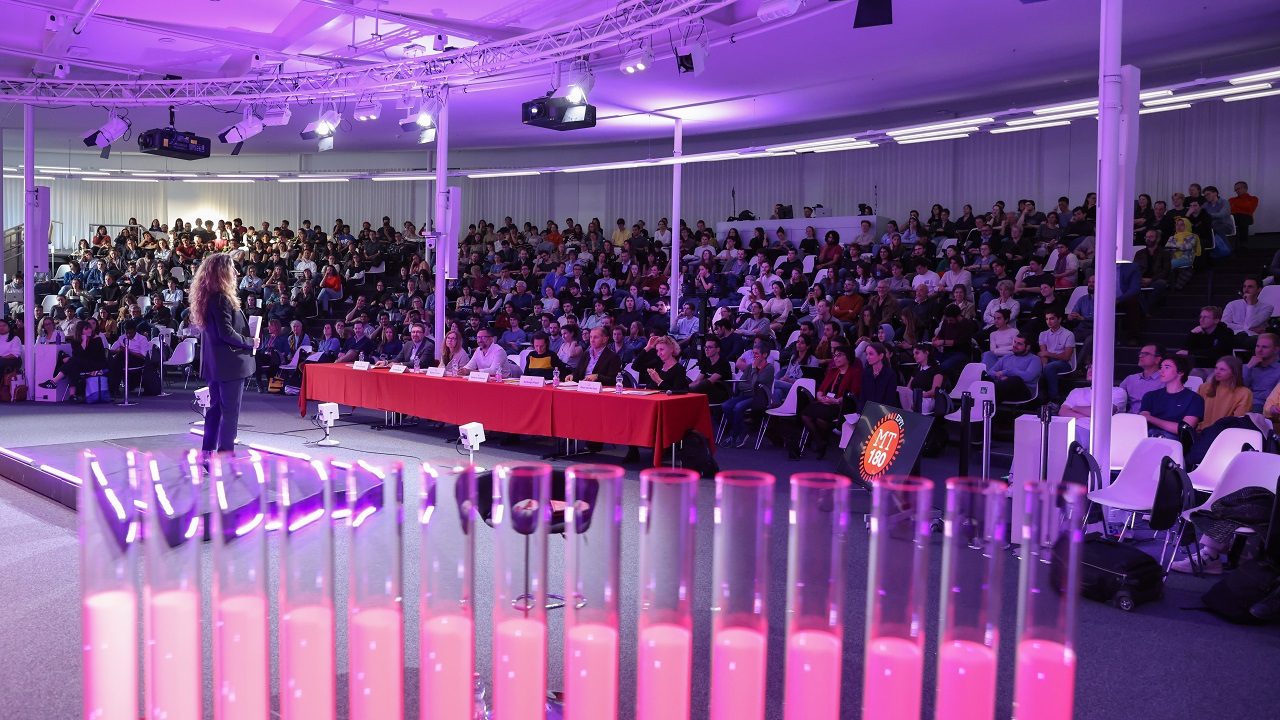
Editions passées
Finales EPFL MT180
